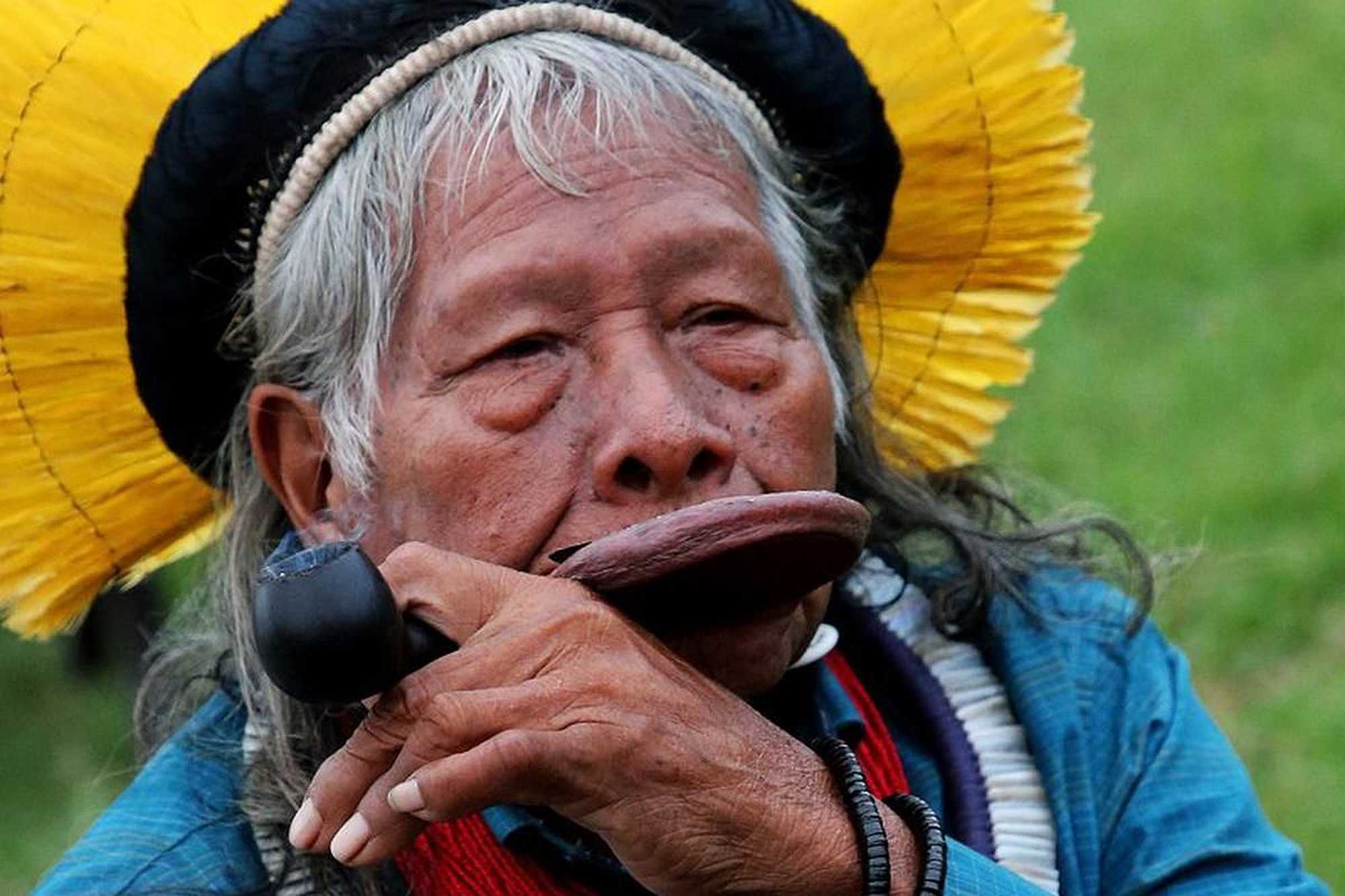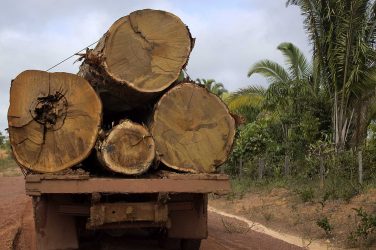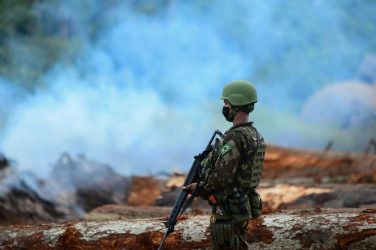Brazil’s Chief Raoni Metuktire, one of the most iconic defenders of the Amazon, condemned Brazilian President Jair Bolsonaro for blaming wildfires devastating the rainforest on indigenous people.
The far-right president sparked controversy last week with a speech to the United Nations General Assembly in which he defended his environmental record and said the fires destroying large swaths of the world’s biggest rainforest were largely set by indigenous farmers using traditional slash-and-burn agriculture.
Environmentalists, who say the fires are mainly set to clear land for large-scale agribusiness, were quick to dispute the claim – as did Raoni, a 90-year-old chief of the Kayapo people, known for traveling the world to raise awareness of threats to the Amazon.
“He said on TV that Indians were setting the planet on fire. That’s a lie. The farmers are the ones setting the fires,” Raoni told journalists during a visit to the west-central city of Sinop for a medical check-up.
“Some of them are harming the forest. Loggers, gold miners … They are the ones setting the planet on fire,” added the chief, who is famous for the large disc inserted in his lower lip and his colorful feather headdresses.
Raoni is the latest figure to accuse the president of distorting the truth in his speech, in which Bolsonaro downplayed damage to the Amazon and said Brazil was the victim of a “brutal disinformation campaign.”
Bolsonaro has presided over a surge in deforestation since taking office in January 2019.
Last year, deforestation in the Brazilian Amazon increased 85.3 per cent, to a record 10,123 sq km – nearly the size of Lebanon. So far this year, the rate is down by about five percent, though the number of fires has increased 12 per cent, to 71,673.
Meanwhile, just south of the Amazon, the world’s largest tropical wetlands, the Pantanal, are also being devastated by fires this year. In less than nine months, 2020 has already broken the annual record for the number of fires in the Brazilian Pantanal, with 16,119, burning more than 10 per cent of the wetlands.
Bolsonaro’s Veto
Brazil’s President has vetoed provisions of a law that obligated the federal government to provide drinking water, disinfectants, and a guarantee of hospital beds to indigenous communities amid the COVID-19 pandemic.
The president’s office said those provisions in the law, approved by Congress, were “against the public interest” and “unconstitutional,” by creating expenses for the federal government without new sources of revenue to cover them.
Brazil’s indigenous population of roughly 850,000 is more vulnerable to the COVID-19, the disease caused by the novel coronavirus, as they live in remote areas with little access to health care systems and because their communal lifestyle rules out social distancing.
Bolsonaro vetoed 16 parts of the law on efforts to address the coronavirus threat to Brazil’s indigenous population, but still allowed for provisions on adequate testing, ambulance services and medical equipment.
“The vetoes deny the minimum necessary for the survival of these communities,” Brazilian indigenous advocacy group Instituto Socioambiental (ISA) said in a statement.
“The vetoes reveal that the president’s plan is not to have a plan,” it said. ISA called on Congress to overturn the vetoes, which it can do with sufficient votes.
The president also vetoed funding for the states and local governments with emergency plans for indigenous communities, as well as provisions to help give them more information on coronavirus, including greater internet access.
On the campaign trail, Bolsonaro swore to not to designate any more land for indigenous reserves. The right-wing populist has sought to assimilate indigenous peoples by calling for commercial farming and mining to be introduced on their reserves, saying it will raise them out of poverty.
Mercopress














